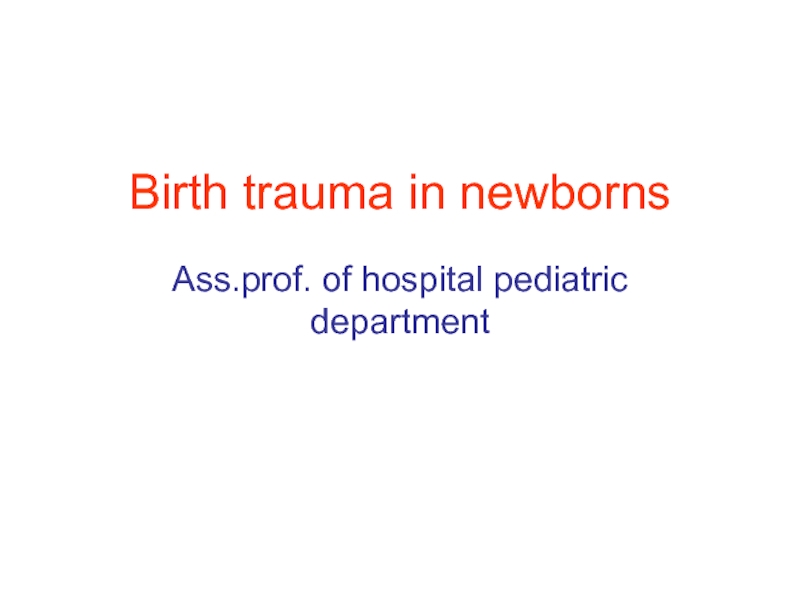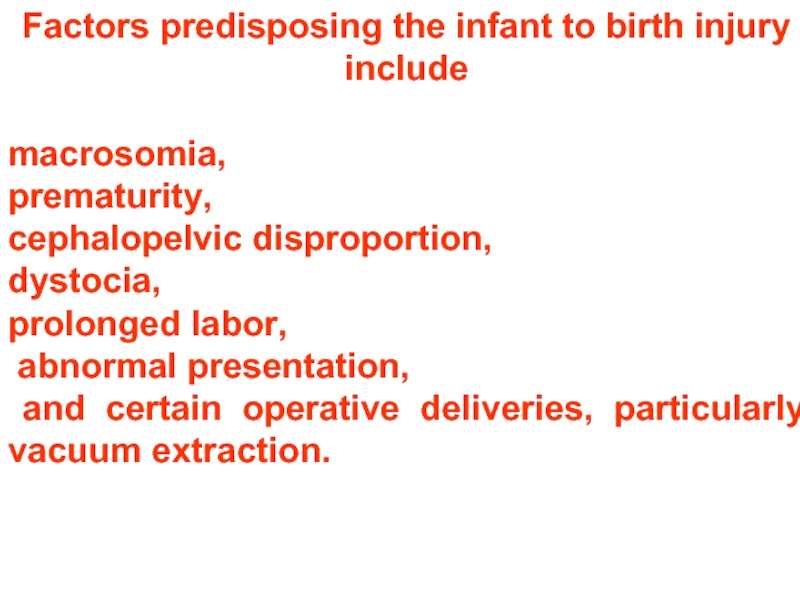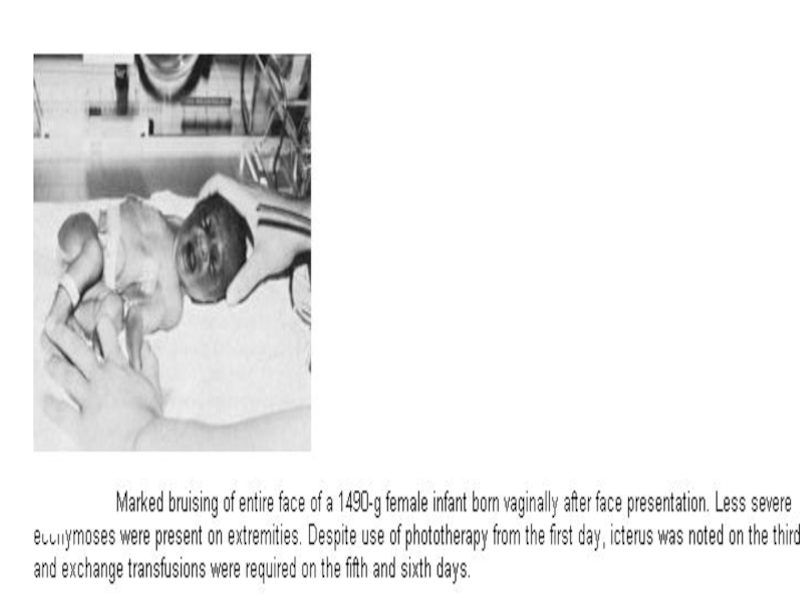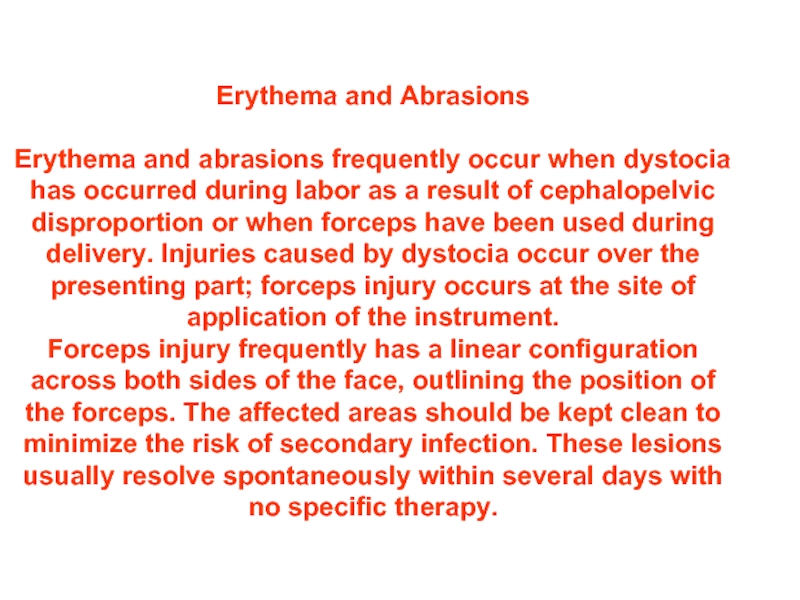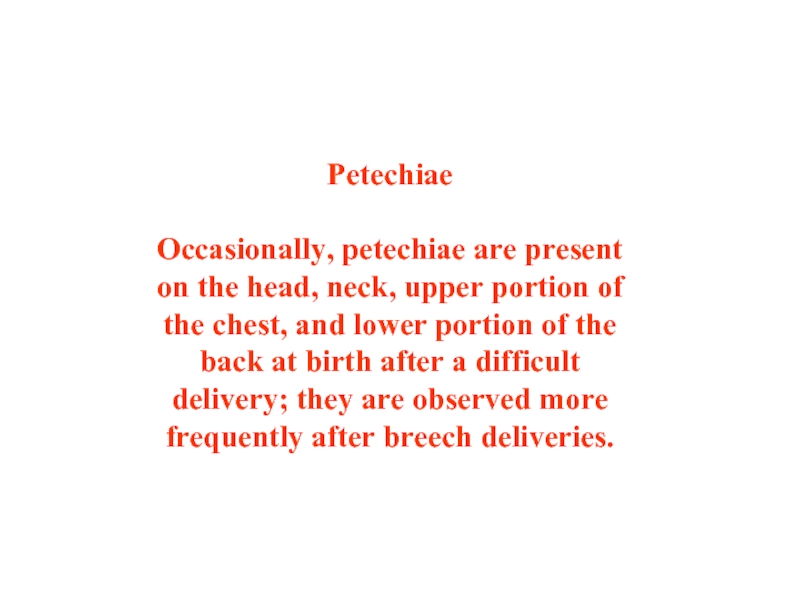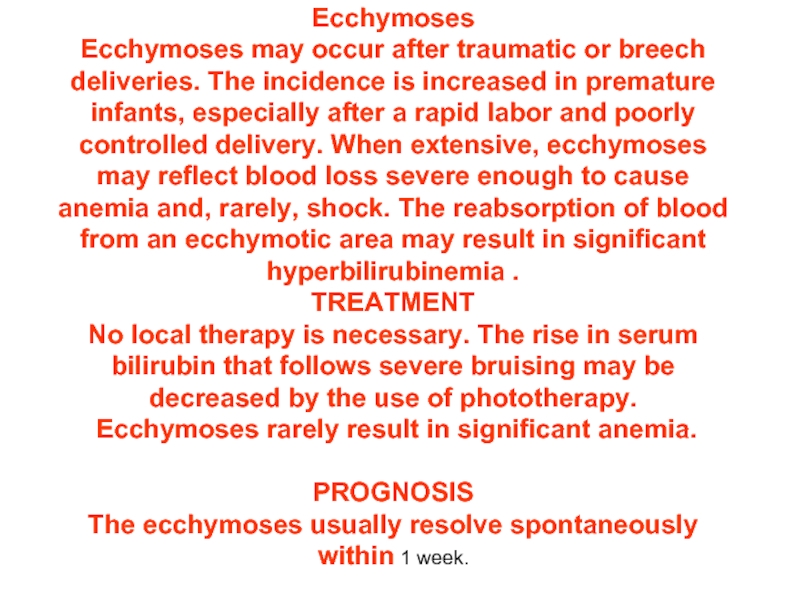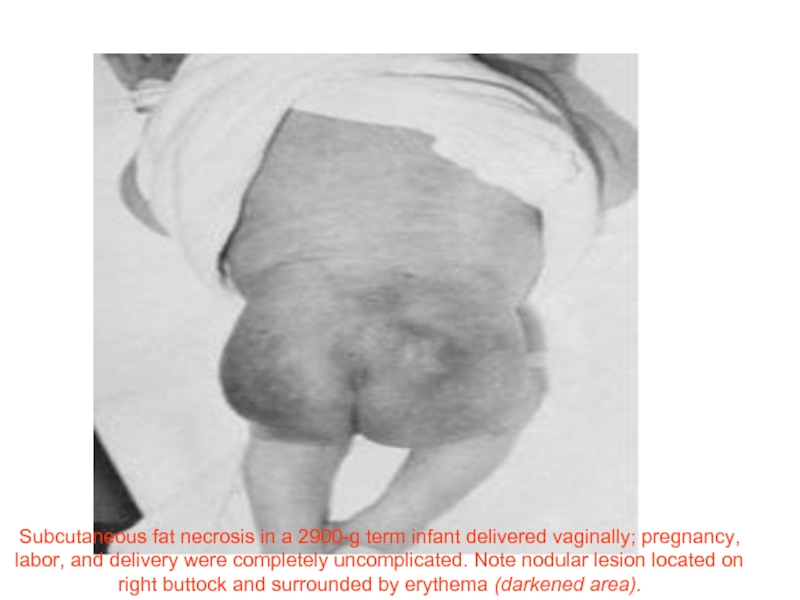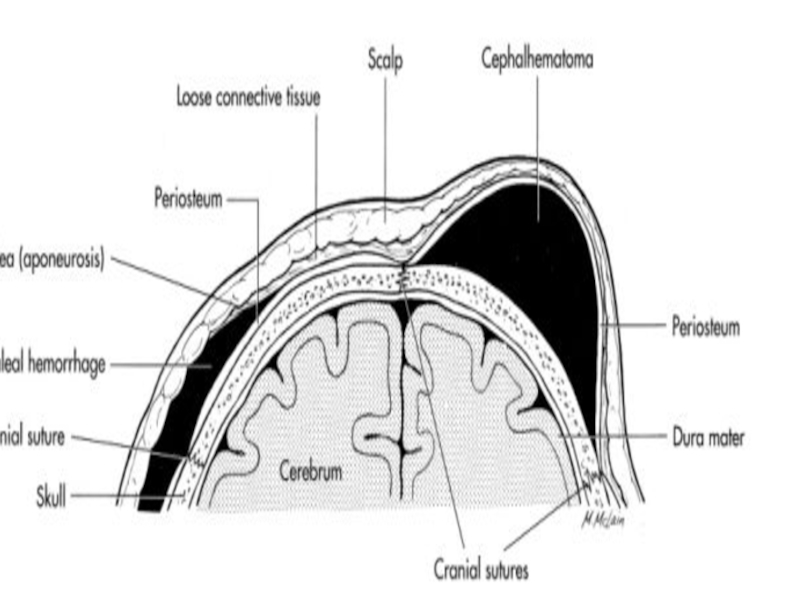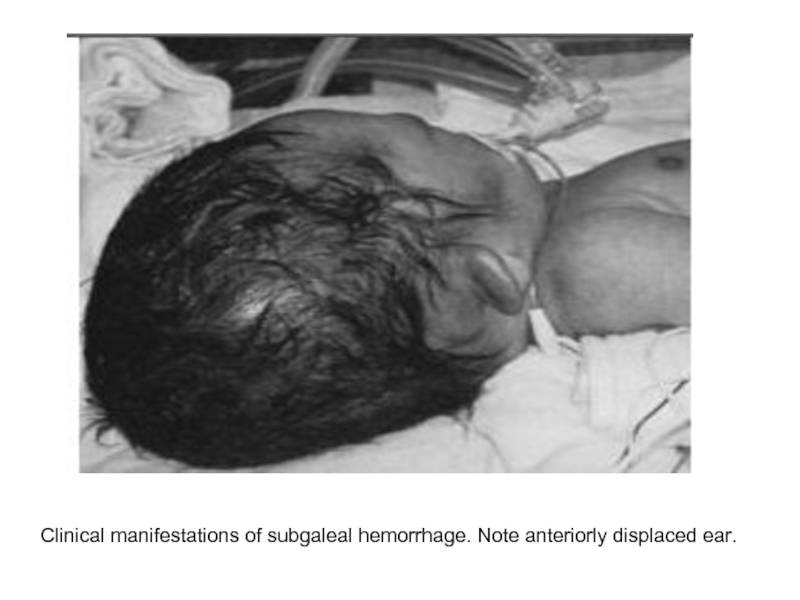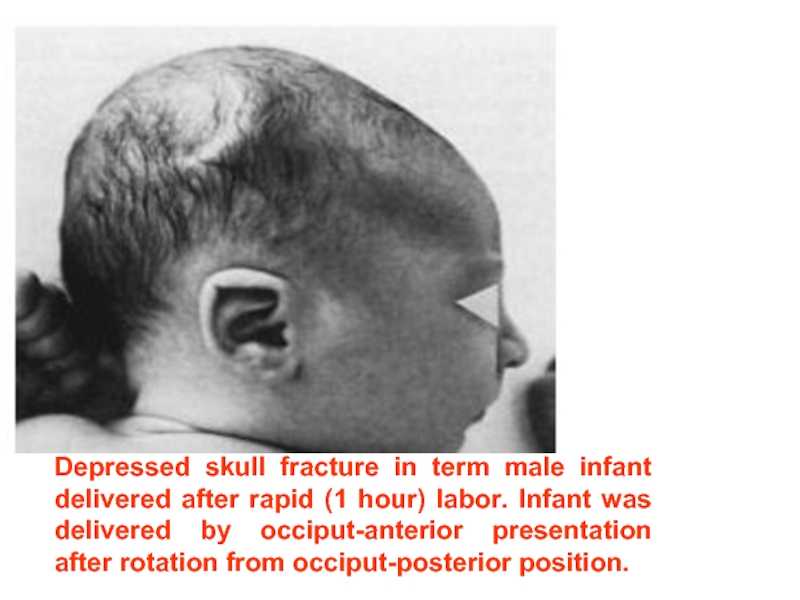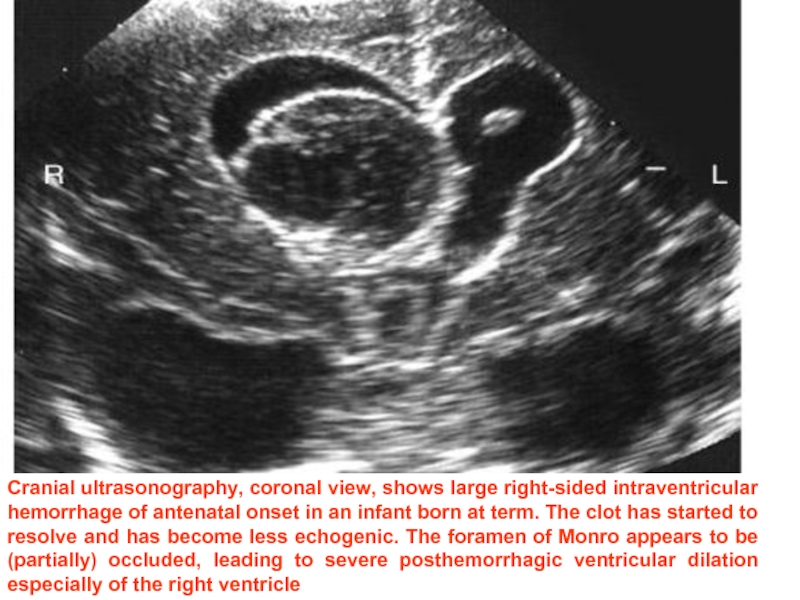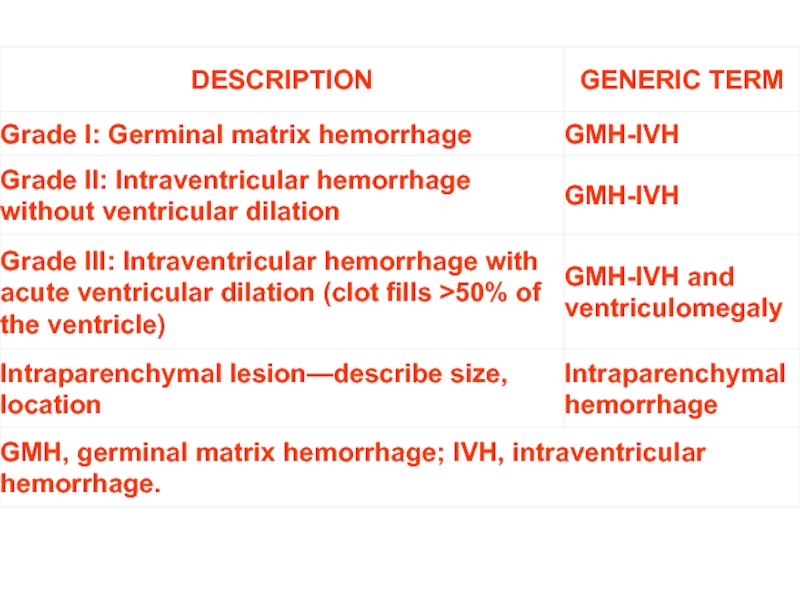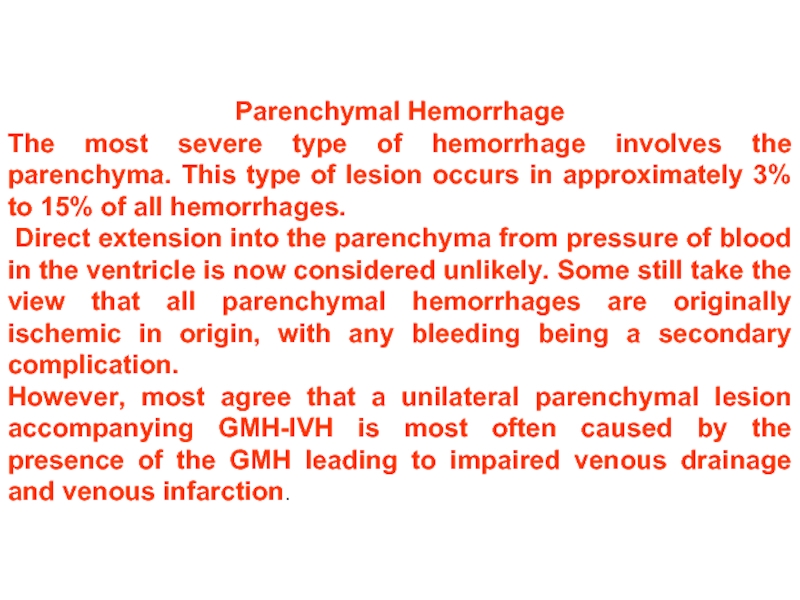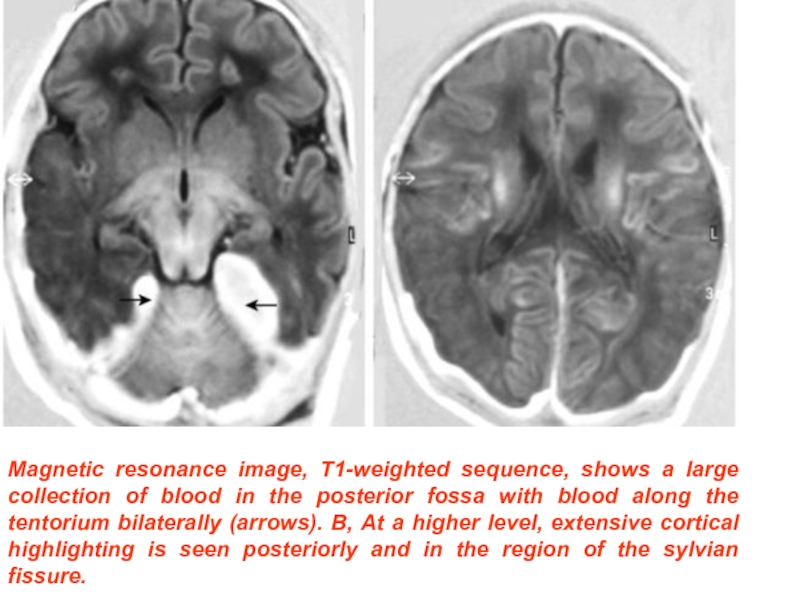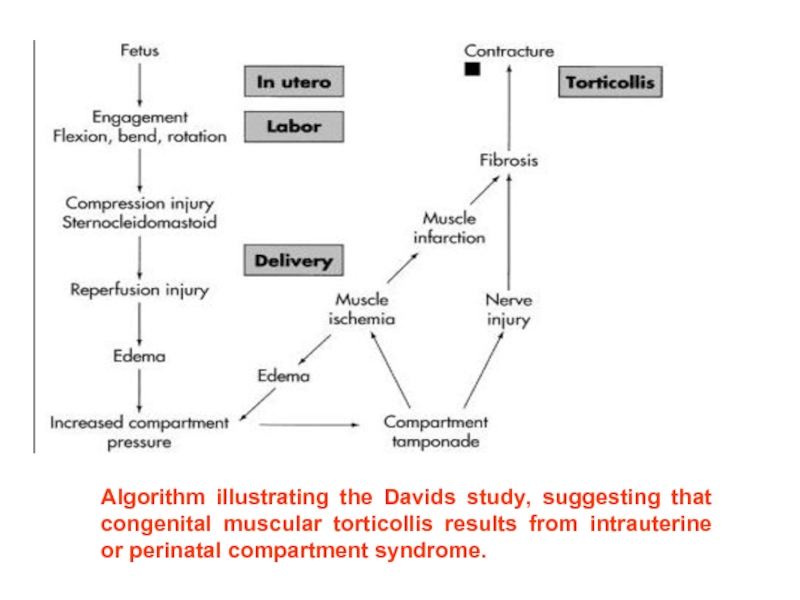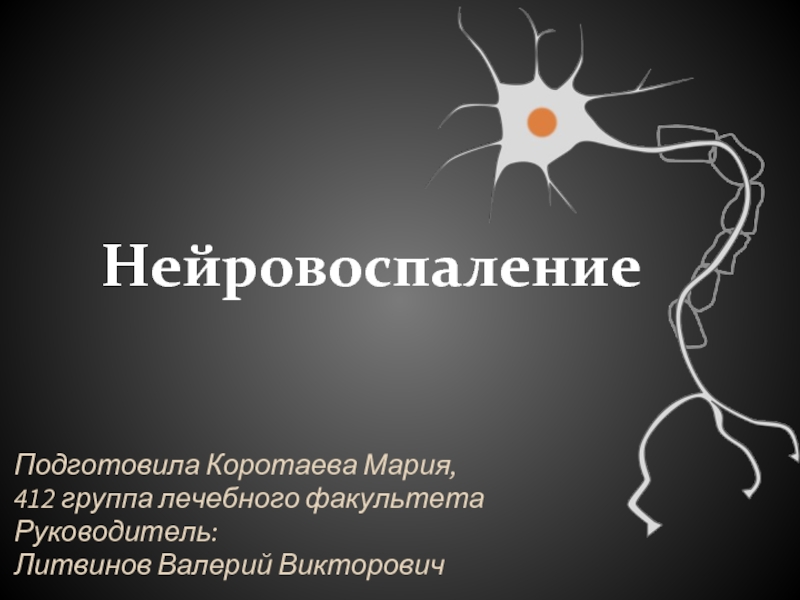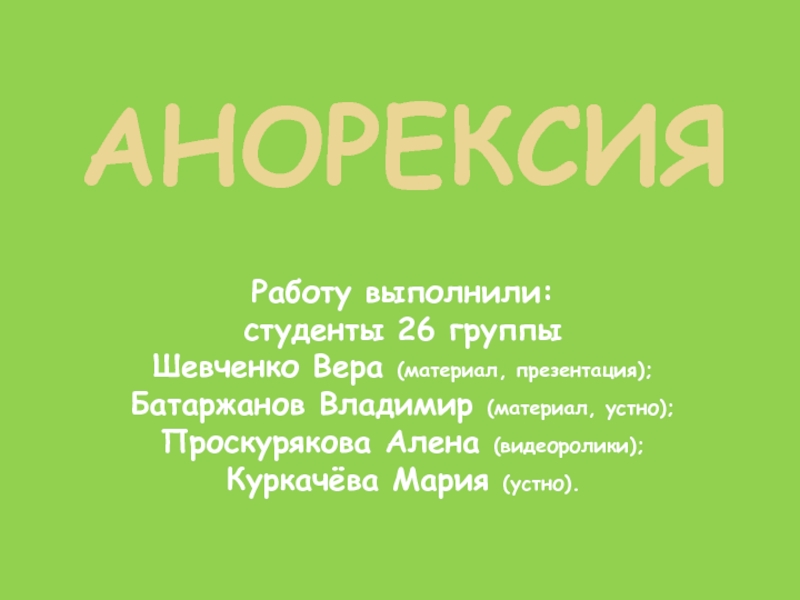- Главная
- Разное
- Дизайн
- Бизнес и предпринимательство
- Аналитика
- Образование
- Развлечения
- Красота и здоровье
- Финансы
- Государство
- Путешествия
- Спорт
- Недвижимость
- Армия
- Графика
- Культурология
- Еда и кулинария
- Лингвистика
- Английский язык
- Астрономия
- Алгебра
- Биология
- География
- Детские презентации
- Информатика
- История
- Литература
- Маркетинг
- Математика
- Медицина
- Менеджмент
- Музыка
- МХК
- Немецкий язык
- ОБЖ
- Обществознание
- Окружающий мир
- Педагогика
- Русский язык
- Технология
- Физика
- Философия
- Химия
- Шаблоны, картинки для презентаций
- Экология
- Экономика
- Юриспруденция
Birth trauma in newborns презентация
Содержание
- 1. Birth trauma in newborns
- 2. Factors predisposing the infant to birth injury
- 4. Erythema and Abrasions Erythema and
- 5. Petechiae Occasionally, petechiae are present
- 6. Ecchymoses Ecchymoses may occur after traumatic
- 7. Subcutaneous fat necrosis in a 2900-g term
- 9. Clinical manifestations of subgaleal hemorrhage. Note anteriorly displaced ear.
- 10. Depressed skull fracture in term male infant
- 11. Cranial ultrasonography, coronal view, shows large right-sided
- 13. Parenchymal Hemorrhage The most severe type
- 14. Magnetic resonance image, T1-weighted sequence, shows a
- 15. Algorithm illustrating the Davids study, suggesting that
Слайд 2Factors predisposing the infant to birth injury include
macrosomia,
prematurity,
cephalopelvic
disproportion,
dystocia,
prolonged labor,
abnormal presentation,
and certain operative deliveries, particularly vacuum extraction.
dystocia,
prolonged labor,
abnormal presentation,
and certain operative deliveries, particularly vacuum extraction.
Слайд 4Erythema and Abrasions
Erythema and abrasions frequently occur when dystocia has
occurred during labor as a result of cephalopelvic disproportion or when forceps have been used during delivery. Injuries caused by dystocia occur over the presenting part; forceps injury occurs at the site of application of the instrument.
Forceps injury frequently has a linear configuration across both sides of the face, outlining the position of the forceps. The affected areas should be kept clean to minimize the risk of secondary infection. These lesions usually resolve spontaneously within several days with no specific therapy.
Forceps injury frequently has a linear configuration across both sides of the face, outlining the position of the forceps. The affected areas should be kept clean to minimize the risk of secondary infection. These lesions usually resolve spontaneously within several days with no specific therapy.
Слайд 5Petechiae
Occasionally, petechiae are present on the head, neck, upper portion
of the chest, and lower portion of the back at birth after a difficult delivery; they are observed more frequently after breech deliveries.
Слайд 6Ecchymoses
Ecchymoses may occur after traumatic or breech deliveries. The incidence
is increased in premature infants, especially after a rapid labor and poorly controlled delivery. When extensive, ecchymoses may reflect blood loss severe enough to cause anemia and, rarely, shock. The reabsorption of blood from an ecchymotic area may result in significant hyperbilirubinemia .
TREATMENT
No local therapy is necessary. The rise in serum bilirubin that follows severe bruising may be decreased by the use of phototherapy.
Ecchymoses rarely result in significant anemia.
PROGNOSIS
The ecchymoses usually resolve spontaneously within 1 week.
TREATMENT
No local therapy is necessary. The rise in serum bilirubin that follows severe bruising may be decreased by the use of phototherapy.
Ecchymoses rarely result in significant anemia.
PROGNOSIS
The ecchymoses usually resolve spontaneously within 1 week.
Слайд 7Subcutaneous fat necrosis in a 2900-g term infant delivered vaginally; pregnancy,
labor, and delivery were completely uncomplicated. Note nodular lesion located on right buttock and surrounded by erythema (darkened area).
Слайд 10Depressed skull fracture in term male infant delivered after rapid (1
hour) labor. Infant was delivered by occiput-anterior presentation after rotation from occiput-posterior position.
Слайд 11Cranial ultrasonography, coronal view, shows large right-sided intraventricular hemorrhage of antenatal
onset in an infant born at term. The clot has started to resolve and has become less echogenic. The foramen of Monro appears to be (partially) occluded, leading to severe posthemorrhagic ventricular dilation especially of the right ventricle
Слайд 13Parenchymal Hemorrhage
The most severe type of hemorrhage involves the parenchyma.
This type of lesion occurs in approximately 3% to 15% of all hemorrhages.
Direct extension into the parenchyma from pressure of blood in the ventricle is now considered unlikely. Some still take the view that all parenchymal hemorrhages are originally ischemic in origin, with any bleeding being a secondary complication.
However, most agree that a unilateral parenchymal lesion accompanying GMH-IVH is most often caused by the presence of the GMH leading to impaired venous drainage and venous infarction.
Direct extension into the parenchyma from pressure of blood in the ventricle is now considered unlikely. Some still take the view that all parenchymal hemorrhages are originally ischemic in origin, with any bleeding being a secondary complication.
However, most agree that a unilateral parenchymal lesion accompanying GMH-IVH is most often caused by the presence of the GMH leading to impaired venous drainage and venous infarction.
Слайд 14Magnetic resonance image, T1-weighted sequence, shows a large collection of blood
in the posterior fossa with blood along the tentorium bilaterally (arrows). B, At a higher level, extensive cortical highlighting is seen posteriorly and in the region of the sylvian fissure.
Слайд 15Algorithm illustrating the Davids study, suggesting that congenital muscular torticollis results
from intrauterine or perinatal compartment syndrome.
